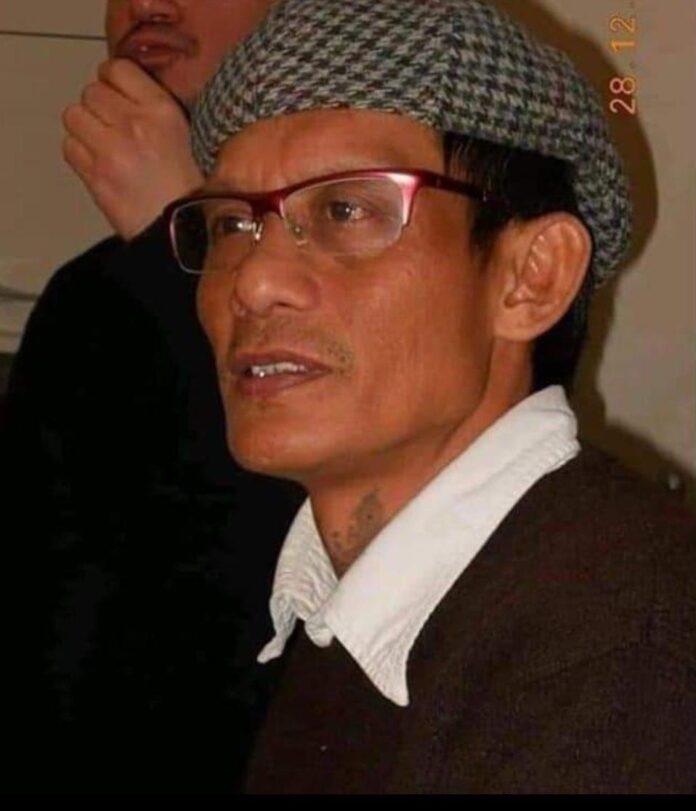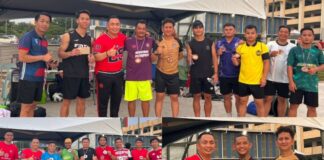KOTA KINABALU: Social rights activist Peter John Jaban has voiced his strong support for the call by outgoing Parti Rakyat Sarawak (PRS) president Datuk Sri Joseph Salang Gandum for a party structure that provides fairer and more balanced representation for its constituents in both rural and sub-urban communities.
The structure of PRS also must anticipate the forthcoming re-delineation exercise to add more seats to the Sarawak DUN following the special sitting earlier this year.
Peter John said: “This comes at a crucial time of rapid transformation in our rural and semi-urban demographics, especially among the Iban population. Our representatives must recognise the reality: the future of the Dayak community is not confined to deep rural areas alone. It also lies in these growing semi-urban zones, where Iban professionals, civil servants, and young families are now forming new communities. It is time for PRS to highlight this issue.”
Peter explained that the traditional geographic spread of ethnic communities no longer holds true. This transformation mirrors a larger trend of rural–urban migration among the Iban, one of the most significant social shifts in Sarawak’s modern history. Over the last 50 years, many Ibans from longhouse communities in Kapit, Lubok Antu, Betong, and Sri Aman have moved to semi-urban hubs like Samarahan, Batu Kawa, Kota Sentosa, Matang, and Serian in search of better jobs, education, and living standards.
“Our semi-urban communities are also changing fast,” Peter said today, citing as examples areas such as Merdang Limau, Merdang Gayam, Merdang Lumut, Bukit Belian, Sejitin, Sebayor, Enti gan and Melaban. “These places were once quiet Iban settlements surrounded by paddy fields and fruit gardens.” he added. “Today, they have become busy residential areas with mixed communities, new housing projects, and commercial centres.
“We see many Chinese and other natives buying homes, new housing estates emerging, and young Dayak families moving into these areas.” He added that many of these traditional Iban kampungs have since been renamed or redeveloped into new suburban neighbourhoods such as Uni Garden, Desa Ilmu, Samarindah, and several other housing estates, a clear reflection of how fast the landscape has changed in just a few decades.
He further noted that Samarahan is now a microcosm of Sarawak’s future as a place where different races live side by side in rapidly expanding suburban populations. “The Iban people are moving from the longhouse to the township, from subsistence to opportunity,” he said, adding that with this migration comes new challenges. “We risk losing representation and voice if our political structures do not evolve alongside this reality,” he added.
“Many Dayaks now living in urban and suburban areas are left without clear political representation, despite their growing numbers and contributions to Sarawak’s economy. These are our people too. They may live in housing estates instead of longhouses, but they face issues of cost of living, land rights, cultural preservation, and social identity that still need a strong Dayak voice,” he said.
“We cannot afford a situation where urban Dayaks become politically invisible simply because constituency boundaries or party structures still follow the old rural patterns. This is not about choosing between rural or urban. It’s about ensuring that every Iban and other Dayak voice, whether from a longhouse or a housing estate, has equal weight in shaping Sarawak’s political future,” Peter said.
“The coming redelineation exercise on state and parliamentary electoral boundaries in Sarawak by the Election Commission (EC) must also ensure better rural and urban representation through proper allocation of seats among component parties of Gabungan Parti Sarawak (GPS) which takes into account the fast-changing population distribution,” he added.
He praised Datuk Sri Joseph Salang for his inclusive leadership and forward-looking vision, ensuring that PRS continues to represent both the traditional rural heartland and the new suburban frontlines. He urged PRS and other Dayak-based parties to plan long-term strategies that address the needs of rural–urban migrants, including housing, education, and job access, while maintaining their cultural identity. “Development must serve the people, not the other way around. Our Iban people are moving forward, seeking new opportunities and PRS must move with them,” he said.
Finally, Peter urged that whoever becomes the new president of PRS after Datuk Sri Joseph Salang must take this matter seriously and continue the effort to strengthen representation for the growing semi-urban and Iban communities in places like Kota Samarahan, which is expanding rapidly. With so many new housing developments coming up towards 2028, PRS must be ready to represent this new population: a mix of Iban, Bidayuh, Malay, and Chinese communities who are shaping the future of modern Sarawak.


